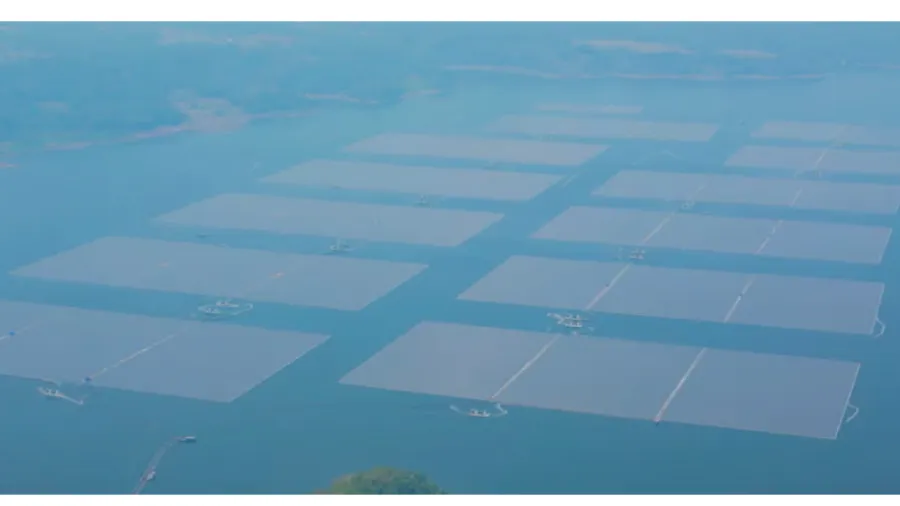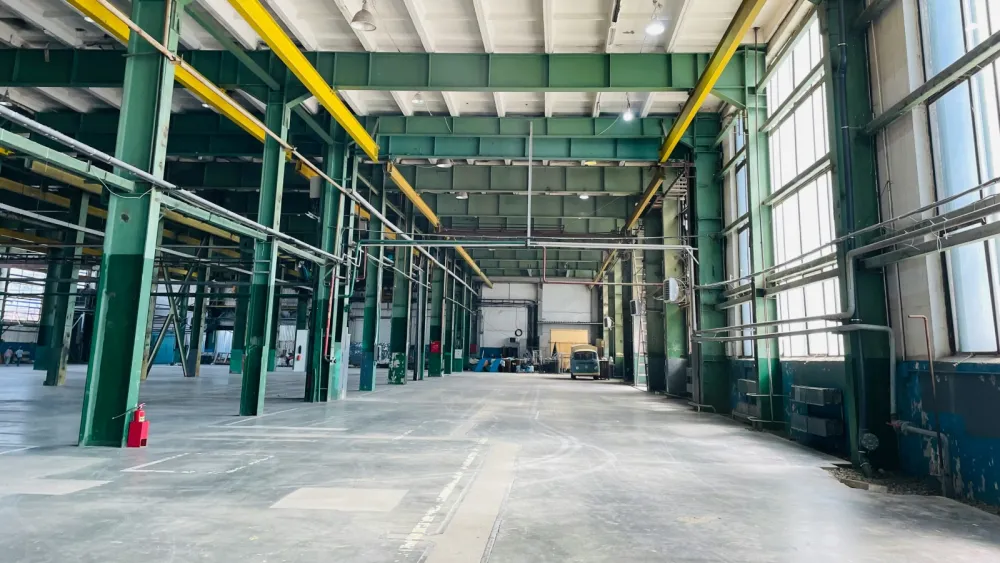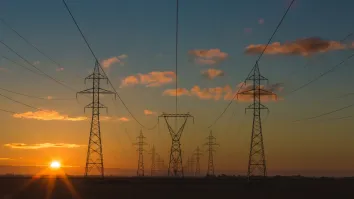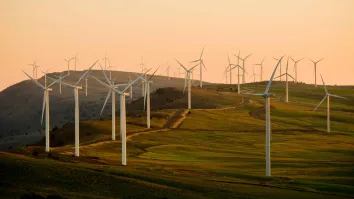
Masdar, PT PLN NR conquer Cirata reservoir’s depth for largest floating solar farm in SE Asia
The power plant can provide electricity to around 50,000 households in West Java.
DEVELOPING Indonesia’s first-ever floating solar power plant, which happens to be the largest in Southeast Asia, is already challenging enough. But installing it on the deepest reservoir to ever have such technology poses another layer of obstacles. That is why Abu Dhabi-based renewable energy firm Masdar and PT PLN Nusantara Renewables have come in — to develop two different anchoring systems to compensate for the location’s depth.
Fatima Al Suwaidi, president director of Masdar Indonesia, said that they installed over 300,000 bifacial solar modules on top of the Cirata Reservoir in the West Java Region covering a 250-hectare plot.
The Cirata Floating Solar Photovoltaic (FPV) has a capacity of 192 megawatts-peak or 145 MW alternating current, capable of powering around 50,000 households whilst reducing over 214,000 carbon dioxide emissions annually.
However, the reservoir has a depth that could reach around 100 to 110 metres, and extreme slopes of as much as 40 degrees, requiring the companies to develop two anchoring systems to ensure the stability of the floating solar panels.
“Given that [the project was developed on] quite a deep reservoir, this has created not only a blueprint for Indonesia, but it has [also] set the benchmark for the floating PV industry worldwide,” Al Suwaidi told Asian Power. “We designed a fully integrated system that can tolerate such depth and the challenging soil nature in Cirata reservoir.”
For the power plant, they designed different anchoring systems for areas with lower slopes, and those that have higher slopes.
These are needed to ensure the security of the floating solar panels, as the mechanism needed for the anchor to hold onto the soil of the lake bed would be slightly different on varying slopes.
“We conducted the relevant field tests to make sure that both anchoring systems are not only suitable for that lakebed or that reservoir but also could withstand any sort of risk that might come about in the next 25 years (during its full project life),” Al Suwaidi said.
Due to the reservoir’s depth, Al Suwaidi said they had to ensure the construction of Cirata FPV was done in the safest manner possible.
As such, they crafted a system that will enable the installation of the mooring and anchoring without requiring human divers.
“This was a very important breakthrough for us because we needed to make sure that safety remains our priority and that we’re able to deliver this project to the government in an approved and acceptable timeline,” she said.
Policy side
Masdar and PT PLN Nusantara needed $145m to build Cirata FPV, with Standard Chartered Bank, Sumitomo Mitsui Banking Corporation, and Societe General acting as the lenders.
As this was Indonesia’s inaugural floating solar power project, Al Suwaidi said that applying for permits and licenses was also challenging because they had to clearly define and explain the type of power plant they were working on.
The entire process was a “learning experience” for both companies, as well as the government of Indonesia who were open to exploring such development.
“We were able to support them in establishing a new government process on floating solar development. As part of that challenge and learning experience, the government was able to even release a floating solar guidebook which was inspired by the Cirata project,” she said.
Assessing the environmental safety and impact of the project was also challenging, being a first for the country.
Al Suwaidi said that understanding the environmental impact of the project is vital for them to identify how to mitigate such impact and see how they could potentially maximise the project.
Involving local community
During the project development, the two companies established a “fully integrated and interconnected system” that involved the local communities, Al Suwaidi said.
Masdar and PT PLN Nusantara provided over 1,400 jobs during the construction phase. They tapped the support of the nearby villages and the women in the community for the installation of some cabling onshore.
The youth were also brought in to ensure the security of the location, whilst the fishermen provided support during the offshore installation. Al Suwaidi noted that they were all instrumental in navigating the reservoir.
Aside from this, they also provided capacity-building programmes to raise awareness about the project, with a lot of fishermen and farmers earning certificates in solar operation and maintenance that would allow them to work in any solar power plant in the country.
The companies also conducted workshops with domestic suppliers by inviting Tier 1 suppliers from China to teach them about upgrading facilities, addressing quality and performance matters, and obtaining certifications.
They also held empowerment programmes for women, youth, and people with disabilities. “It was very important for us that beyond the development of the power plant itself, we look at the nearby villages,” Al Suwaidi said.
Expansion plans
Even before the launch of Cirata FPV in November 2023, Masdar and PLN NP had already signed a deal in September for the development of the project’s second phase by up to 500 MW.
This came following a regulatory move from Indonesia’s Ministry of Public Works and Housing that allows renewable energy to cover up to 20% of a water area, providing Cirata FPV the option to triple its capacity.
Al Suwaidi said Masdar and PT PLN Nusantary already started with the technical assessment and field surveys with the goal of completing them by the end of this year or early next year.


















 Advertise
Advertise







